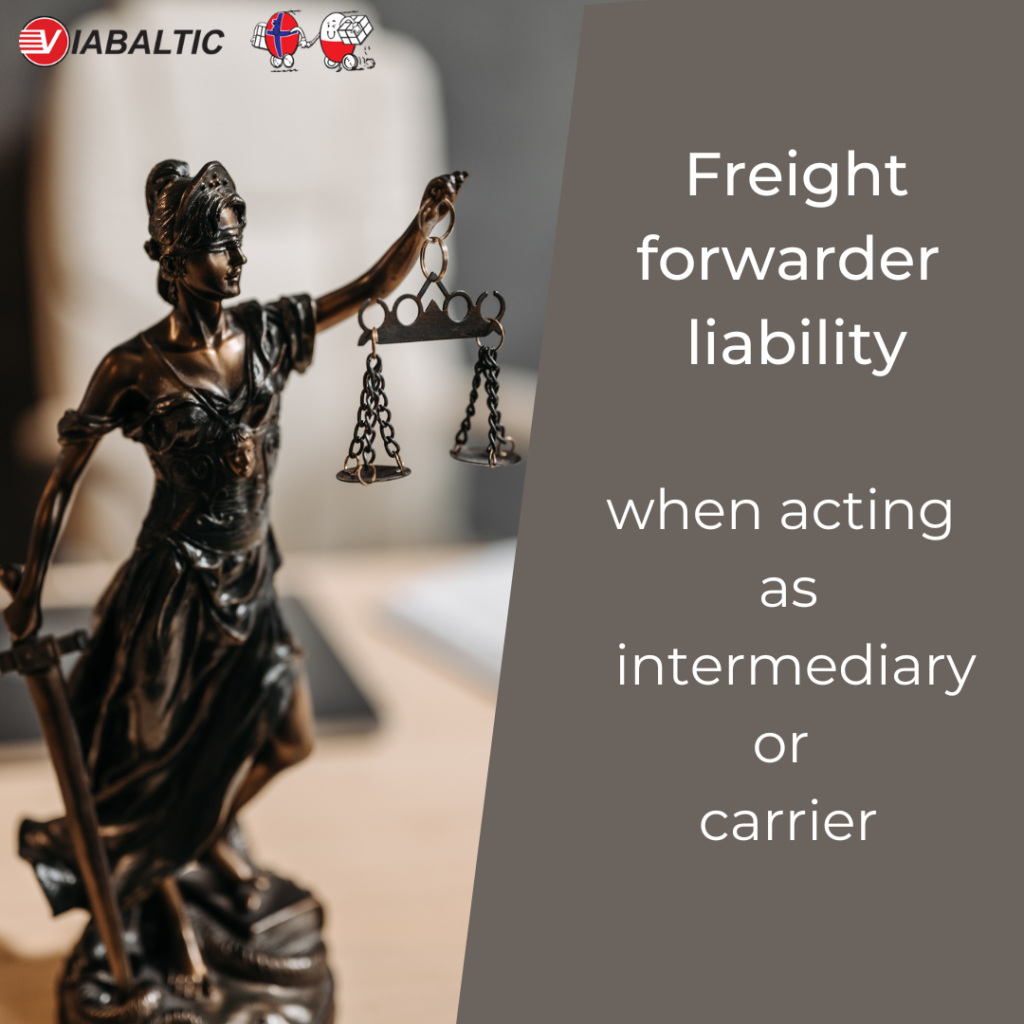The difference in the responsibility of a freight forwarder when acting as an intermediary or as a carrier.

Freight forwarding involves much more than just transportation. The services provided by a freight forwarder to the client cover everything from traditional transportation services to intermediation services in storage,reloading of goods, and assistance for example in customs clearance and insurance.
So, what is the difference between the liability of a freight forwarder as a carrier and their liability when they are only acting as an intermediary?
NSAB §3 regulates the liability of the freight forwarder «as a party to the contract.» There is a distinction between situations where the freight forwarder is a party to the transport contract with the principal (NSAB §3 letter B), and situations involving intermediation (which are governed by the respective provisions §3 letters C and D).
When the freight forwarder is a party to the transport contract, they are subject to transport liability.
In short, transport liability means that the freight forwarder is responsible for the execution of the transport assignment without damages, losses, or delays during the performance of the assignment.
If the freight forwarder acts only as an intermediary, they are not liable, for example, for damage to the goods or delayed delivery of the goods. They are only responsible for properly finding a carrier with whom the client could enter into a transport contract.
Difference between being a carrier and an intermediary
Since the freight forwarder has significantly more limited liability towards the client as an intermediary than as a carrier, regulations impose a requirement for the freight forwarder to clarify to the client, whether they are solely an intermediary or if they undertake the transportation at their own cost.
There is no transportation commitment, and the limited liability of the intermediary applies if the freight forwarder:
- Did not undertake the transport service at their own cost (they receive payment from the principal and specify which parts of the amount covers the intermediary fee, and which goes towards the carrier’s payment).
- Clearly communicated to the client that they are only acting as an intermediary, not a carrier.
Unlike an intermediary, the freight forwarder as a carrier does not have to inform the client that another company is handling the shipment and that part of the payment is for the transportation by another company.
It is also considered that the freight forwarder, by separately indicating the carrier’s transportation price and their own fee for intermediation, has clearly indicated that they are acting solely as an intermediary.
About NSAB:
Nordic Association of Freight Forwarders (NSAB) developed NSAB 2015 which is the Nordic regulations used by the freight business, which in accordance with various conventions and regulations concerning transportation, regulates the relationship between forwarder and client. It also defines the rights, responsibilities, and obligations of the parties.
The regulations can be read by clicking here.
